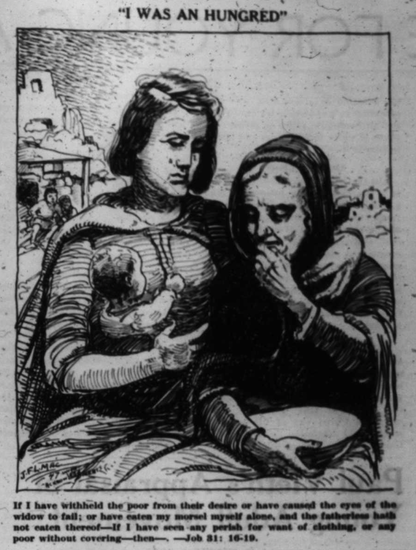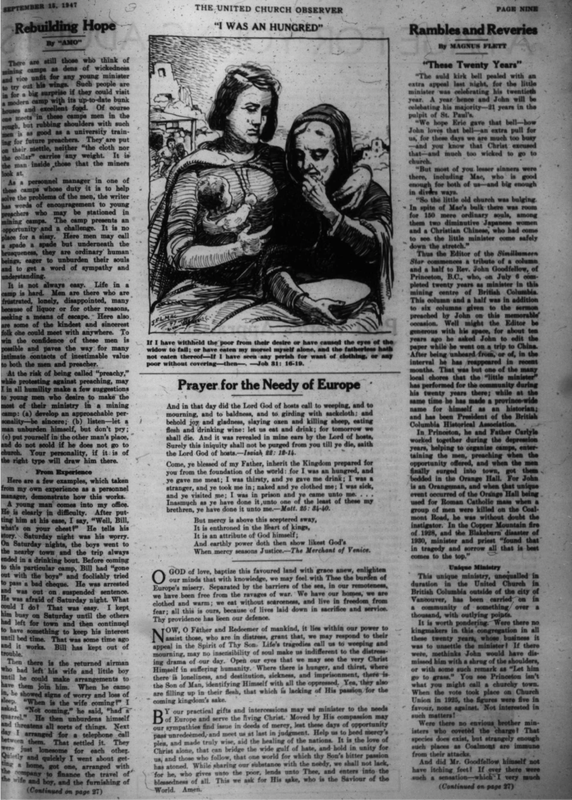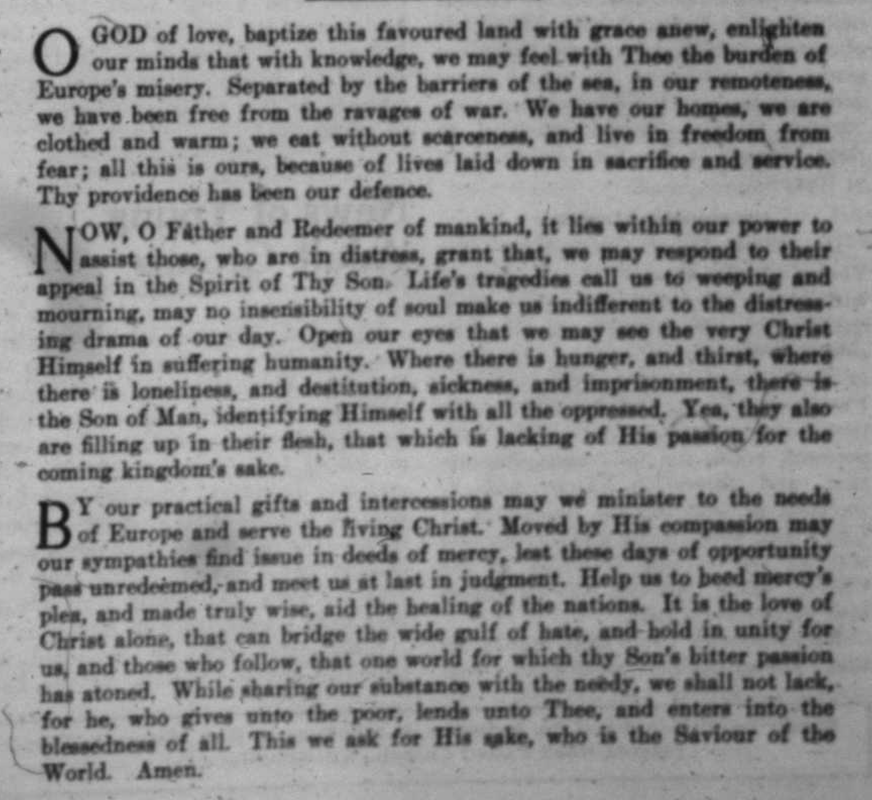|
My blog posts revolve around my interests and vocation as a historian: the intersection of history and contemporary church life, the intersection of history and contemporary politics, serendipitous discoveries in archives or on research trips, publications and research projects, upcoming conferences, and speaking engagements.
I sometimes blog for two other organizations, the Canadian Baptist Historical Society and the Centre for Post-Christendom Studies. The views expressed in these blogs represent the views of the authors, and not necessarily those of any organizations with which they are associated. |
|
This month marks the 78th anniversary of the end of the war against Nazi Germany in Europe (the war in Asia against the Japanese Empire ended in September). The devastation of the war was global, with flattened (and two irradiated) cities, destroyed infrastructure, and ruined economies throughout Europe and Asia. The death toll was staggering, with over 75 million deaths of all sorts including the horrors of mass civilian casualties due to starvation, disease, famine, bombings, and genocide. Civilian deaths outnumbered military deaths by roughly 3 to 1. The Canadian contribution to the war effort was roughly 1.1 million soldiers, with losses of approximately 42,000 dead and 55,000 wounded. Those stark numbers reflect a titanic struggle with an immense cost. But anniversary dates can be deceiving, as can be photos of streets flooded with happy people celebrating liberation. For while the “World War” ended, the devastation of societies was not easily repaired and military conflicts old and new continued for years. For instance, surviving the war in Europe was one thing, making it through the postwar years was another. As Tony Judt writes, all Europe offered in those immediate years of peace was the “prospect of utter misery and desolation.”[1] Keith Lowe’s commentary on the utter destruction of European life echoes Judt’s. He notes how the destruction of homes and industry, transportation and communication networks, and government buildings and services made reconstruction a daunting task, and years of violence, horror, and trauma followed in the wake of the war.[2] What was needed was a massive infusion of foreign aid epitomized by the Marshall Pan (begun in 1948). On a much smaller scale, the churches had been preparing for reconstruction in Europe since the early years of the war, with their focus being primarily on the care of the vulnerable and the rebuilding of churches.[3] And for decades after the war Canadian denominations participated in the sending of resources and personnel to rebuild and revitalize churches in Europe.[4] They also prayed for the recovery of devastated lands in Europe and Asia. The following is a prayer for lands that remained devastated in Europe over two years after the end of the war. It is entitled “Prayer for the Needy of Europe.”[5]
Sadly, that same prayer could still be used today for parts of Europe (Ukraine) experiencing the devastation of war. And sadly, that same prayer could be used for those suffering today from ongoing or past wars in lands such as Yemen, Syria, Iraq, Libya, Sudan, and Afghanistan (and many more…). [1] Tony Judt, Postwar: A History of Europe Since 1945 (New York: Penguin, 2005), 13.
[2] Keith Lowe, Savage Continent: Europe in the Aftermath of World War II (New York: St. Martin’s Press, 2021). [3] Ian McKay Manson, “The United Church and the Second World War,” In A History of the United Church of Canada, edited by Don Schweitzer (Wilfrid Laurier University Press, 2012), 69-70; Adam Rudy, “The Cause of Righteousness and Freedom: Canadian Protestant Churches and the Second World War, 1939-1945,” PhD dissertation, McMaster Divinity College, 2022. [4] James C. Enns, Saving Germany: North American Protestants and Christian Mission to West Germany, 1945-1974 (Montreal/Kingston: McGill-Queen’s University Press, 2017). For examples of postwar church commentary on needs, see “Primate’s Message,” Canadian Churchman 3 May 1945; “A Christian Canada and World Peace,” Canadian Churchman, 24 May 1945; “The War and the Peace,” Canadian Churchman, 7 June 1945; Robert Root, “Christian Institutions Are People: Canadian Churches Help Stricken Europe,” Observer, 15 September 1947. J. H. Rushbrooke, “Canadian Contributions to Europe,” Canadian Baptist, 1 May 1946. [5] “Prayer for the Needy of Europe,” Observer, 15 September 1947.
0 Comments
Leave a Reply. |
Archives
May 2024
|



 RSS Feed
RSS Feed
